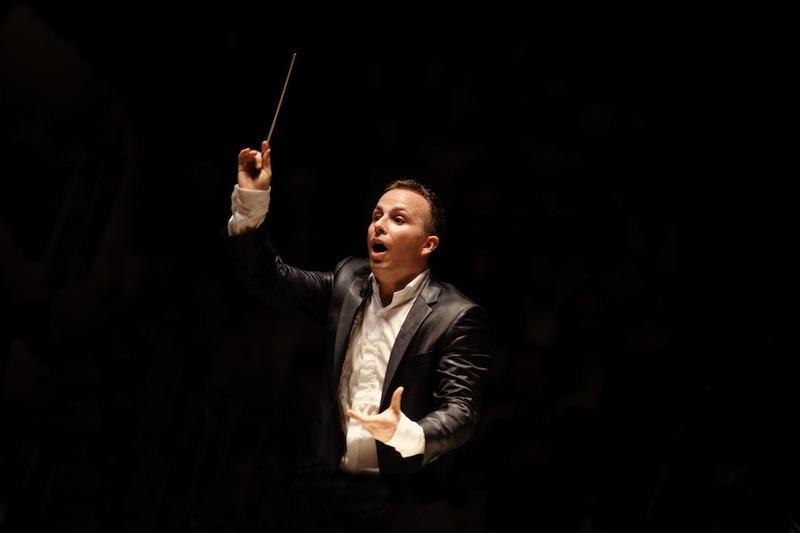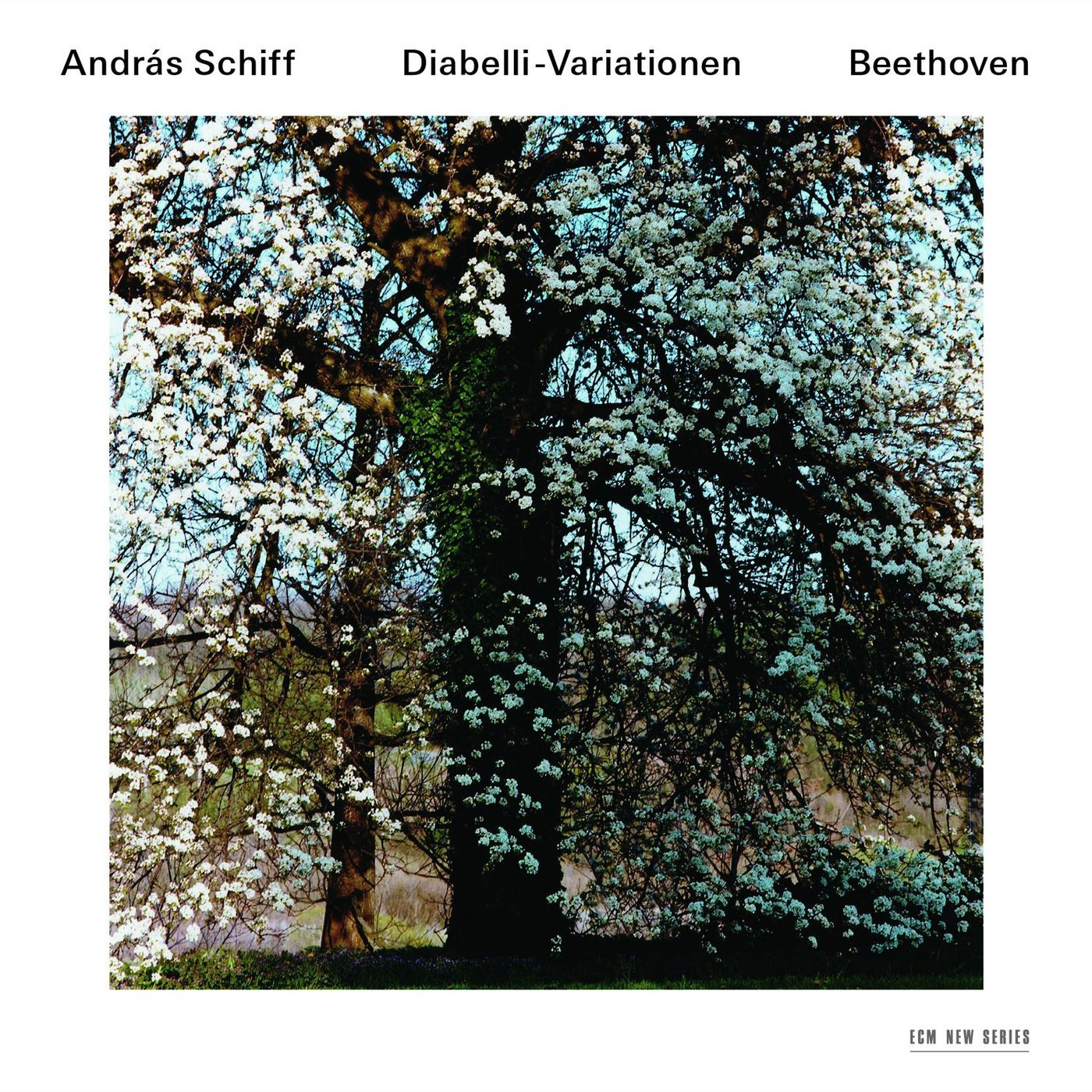Classical CDs Weekly: Beethoven, Mahler, Piaf, Poulenc | reviews, news & interviews
Classical CDs Weekly: Beethoven, Mahler, Piaf, Poulenc
Classical CDs Weekly: Beethoven, Mahler, Piaf, Poulenc
Dynamic piano variations, late romantic vocal music and a delightful meeting between two Parisiens


Invest in a copy of Jeremy Denk's zingy new Goldberg Variations and you'll hopefully be prompted to purchase this rather special András Schiff Beethoven disc – or discs, as he gives us two performances of the Diabelli Variations – one on a velvet-toned 1921 Bechstein once used by Wilhelm Backhaus, and the second on a Franz Brodmann fortepiano built a century earlier. Schiff asks us to wonder whether Beethoven would have liked the Steinway, suggesting that the composer's response might be “Why is this thing so black? It looks like a coffin! Why is the bass so ponderous...?” Beethoven would reluctantly conclude that only a modern instrument's sound can fill a huge concert venue – a tinkly fortepiano can easily become inaudible in a large hall. Schiff's Steinway performance is superbly entertaining – his Buster Keaton approach makes the jokes far subtler than they can be, and it's impossible to suppress giggles of incredulity at the music's odder excursions – right and left hands at odds in Variation 2, or the erratic bursts of energy which suddenly erupt, shattering any hint of pomposity. The final minuet steals on shyly, coyly, seemingly oblivious to what's gone before. Schiff also plays the Op.111 Sonata on the Steinway – its long second movement another extended set of variations.
The fortepiano performance on the second disc is yet more remarkable – subtly edgier, more extreme, the instrument sounding as if it's about to buckle under the strain. Beethoven's eccentric Six Bagatelles makes a magnificent coda, their strangeness accentuated by the fortepiano sound. ECM's presentation is fabulous – it's always enlightening to see reproductions of Beethoven's own musical handwriting, full of scratches, scribbles and smudges. Schiff's and Paul Griffith's notes are erudite and accessible, and it's a pleasant surprise to see a colour photograph on an ECM sleeve.

This live performance starts in a mood of bullish exuberance; horns blasting out their pentatonic fanfare with furious energy. You realise that it's something very special in the first song's rapt, quiet centre, the orchestra's principal trumpet magnificent in that tiny, crucial, solo. The orchestral playing is exceptionally good – every aching swell in tutti strings caught to perfection, and there's some exquisite solo woodwind playing. Das Lied von der Erde can be a bit of a slog, but Yannick Nézet-Séguin is alive to its wittier corners – Von der Jugend sounds here like a sophisticated offcut from The Mikado and the brassy romp in the middle of Von der Schönheit is riotous for all the right reasons. And vocally it's highly impressive; you sense that both Sarah Connolly and Toby Spence have put the work in during rehearsal and have shared their thoughts with Nézet-Séguin. Concert performances can be hard to balance, but Andrew Walton and Mike Clements achieve miracles here; Spence never sounds intimidated by the LPO playing at full pelt; his plaintive words at the close of the first song pack an incredible punch. He's great, in other words.
But any reading stands or falls on the quality of the mezzo-soprano. Connolly doesn't disappoint; the voice youthful, rich. Importantly, she's got superb diction. I can remember hearing a terrible Proms performance in the 1980s with an extremely starry soprano in her prime – despite my being near the front of the arena, the words completely failed to register. Der Abschied is paced to perfection here, its quieter corners tender, intimate and moving. Nézet-Séguin's funereal outbursts are suitably chilling, leading to one of the most glorious fadeouts imagineable. All caught in detailed, warm sound. I've long had a love/hate relationship with Das Lied; this team have made me swoon over the work again.

Here's some much-needed light relief. I'm currently wallowing in Hyperion's glorious box set of Poulenc's complete songs, to be reviewed here in a few weeks. As a stopgap, here's a delicious disc issued on Steinway & Sons' own label. There's no record of Poulenc and Edith Piaf ever having met, though they died in the same year (1963), and Poulenc dedicated one of his late piano works to the singer. Jody Hewgill's loveable sleeve art shows them arm in arm, and pianist Antonio Pompa-Baldi's justification for putting the two together is simply that “to me, they share some important traits, as musicians and human beings”. The musical links are easier to find; Poulenc's own songs are intensely melodic, their harmonies infused with the ambience of Parisian music hall. It helps that Pompa-Baldi's Poulenc transcriptions are so beautifully realised, as are Roberto Piana's subtle, sophisticated "elaborations" of numbers made famous by Piaf. The styles never clash.
Songs such as C and Nos souvenirs chantent are among the most beguilling of the Poulenc transcriptions. Yet more moving is a tender, understated version of Montparnasse. Vous n'écrivez plus? closes the anthology in high spirits. Understandably, texts aren't provided, so without the thick Hyperion booklet you'll be rushing to Google for the missing lyrics. There's also the bittersweet Improvisation in C minor, subtitled Hommage à Edith Piaf, sweetly dispatched by Pompa-Baldi. Piana's Piaf transcriptions are great fun. Hymne à l'amour takes on impressive weight, and Je ne regrette rien's sophisticated new clothes fit nicely. A treat, in other words.
Buy
Explore topics
Share this article
Add comment
The future of Arts Journalism
You can stop theartsdesk.com closing!
We urgently need financing to survive. Our fundraising drive has thus far raised £49,000 but we need to reach £100,000 or we will be forced to close. Please contribute here: https://gofund.me/c3f6033d
And if you can forward this information to anyone who might assist, we’d be grateful.

Subscribe to theartsdesk.com
Thank you for continuing to read our work on theartsdesk.com. For unlimited access to every article in its entirety, including our archive of more than 15,000 pieces, we're asking for £5 per month or £40 per year. We feel it's a very good deal, and hope you do too.
To take a subscription now simply click here.
And if you're looking for that extra gift for a friend or family member, why not treat them to a theartsdesk.com gift subscription?
more Classical music
 Bizet in 150th anniversary year: rich and rare French offerings from Palazzetto Bru Zane
Specialists in French romantic music unveil a treasure trove both live and on disc
Bizet in 150th anniversary year: rich and rare French offerings from Palazzetto Bru Zane
Specialists in French romantic music unveil a treasure trove both live and on disc
 Scottish Chamber Orchestra, Ibragimova, Queen’s Hall, Edinburgh review - rarities, novelties and drumrolls
A pity the SCO didn't pick a better showcase for a shining guest artist
Scottish Chamber Orchestra, Ibragimova, Queen’s Hall, Edinburgh review - rarities, novelties and drumrolls
A pity the SCO didn't pick a better showcase for a shining guest artist
 Kilsby, Parkes, Sinfonia of London, Wilson, Barbican review - string things zing and sing in expert hands
British masterpieces for strings plus other-worldly tenor and horn - and a muscular rarity
Kilsby, Parkes, Sinfonia of London, Wilson, Barbican review - string things zing and sing in expert hands
British masterpieces for strings plus other-worldly tenor and horn - and a muscular rarity
 From Historical to Hip-Hop, Classically Black Music Festival, Kings Place review - a cluster of impressive stars for the future
From quasi-Mozartian elegance to the gritty humour of a kitchen inspection
From Historical to Hip-Hop, Classically Black Music Festival, Kings Place review - a cluster of impressive stars for the future
From quasi-Mozartian elegance to the gritty humour of a kitchen inspection
 Shibe, LSO, Adès, Barbican review - gaudy and glorious new music alongside serene Sibelius
Adès’s passion makes persuasive case for the music he loves, both new and old
Shibe, LSO, Adès, Barbican review - gaudy and glorious new music alongside serene Sibelius
Adès’s passion makes persuasive case for the music he loves, both new and old
 Anja Mittermüller, Richard Fu, Wigmore Hall review - a glorious hall debut
The Austrian mezzo shines - at the age of 22
Anja Mittermüller, Richard Fu, Wigmore Hall review - a glorious hall debut
The Austrian mezzo shines - at the age of 22
 First Person: clarinettist Oliver Pashley on the new horizons of The Hermes Experiment's latest album
Compositions by members of this unusual quartet feature for the first time
First Person: clarinettist Oliver Pashley on the new horizons of The Hermes Experiment's latest album
Compositions by members of this unusual quartet feature for the first time
 Gesualdo Passione, Les Arts Florissants, Amala Dior Company, Barbican review - inspired collaboration excavates the music's humanity
At times it was like watching an anarchic religious procession
Gesualdo Passione, Les Arts Florissants, Amala Dior Company, Barbican review - inspired collaboration excavates the music's humanity
At times it was like watching an anarchic religious procession
 Classical CDs: Camels, concrete and cabaret
An influential American composer's 90th birthday box, plus British piano concertos and a father-and-son duo
Classical CDs: Camels, concrete and cabaret
An influential American composer's 90th birthday box, plus British piano concertos and a father-and-son duo
 Cockerham, Manchester Camerata, Sheen, Martin Harris Centre, Manchester review - re-enacting the dawn of modernism
Two UK premieres added to three miniatures from a seminal event of January 1914
Cockerham, Manchester Camerata, Sheen, Martin Harris Centre, Manchester review - re-enacting the dawn of modernism
Two UK premieres added to three miniatures from a seminal event of January 1914
 Kempf, Brno Philharmonic, Davies, Bridgewater Hall, Manchester review - European tradition meets American jazz
Bouncing Czechs enjoy their Gershwin and Brubeck alongside Janáček and Dvořák
Kempf, Brno Philharmonic, Davies, Bridgewater Hall, Manchester review - European tradition meets American jazz
Bouncing Czechs enjoy their Gershwin and Brubeck alongside Janáček and Dvořák
 Solomon, OAE, Butt, QEH review - daft Biblical whitewashing with great choruses
Even a top soprano and mezzo can’t make this Handel paean wholly convincing
Solomon, OAE, Butt, QEH review - daft Biblical whitewashing with great choruses
Even a top soprano and mezzo can’t make this Handel paean wholly convincing

Comments
I can't wait to listen to The